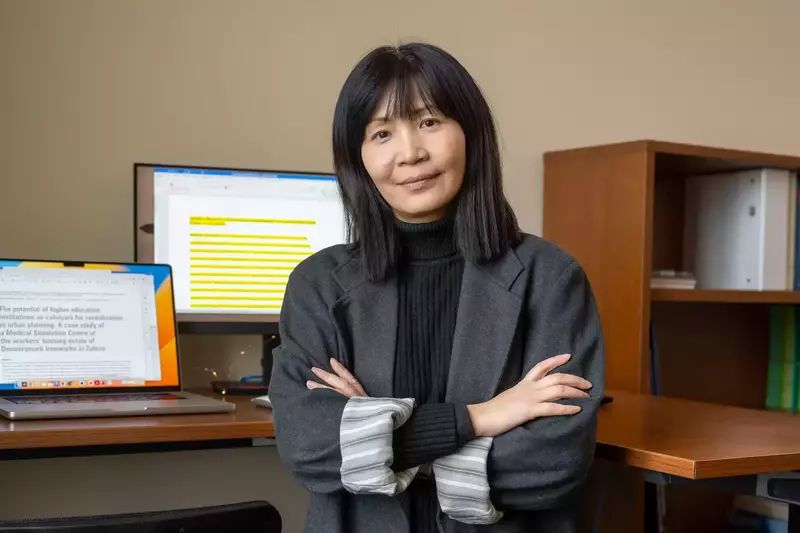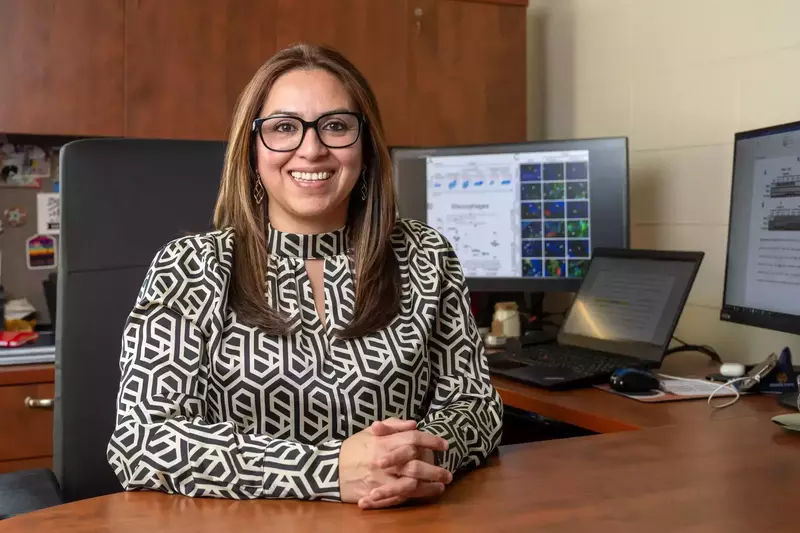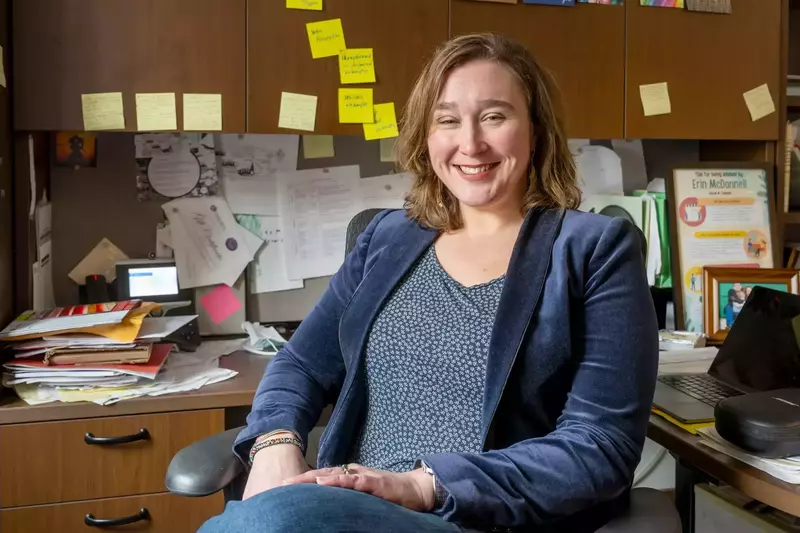When Ming Hu talks about engineering and architecture, the two fields merge into one. Combining analytical and technological skills with hand drawing and spatial literacy has led her to study, practice, and research solutions that are good for the planet and its people. She is emblematic of the right and left brain working together in balance.
“I cannot think of one without thinking of the other,” she said. Hu is the associate dean for research, scholarship, and creative work at the School of Architecture and a concurrent associate professor in the College of Engineering.
With her father an architecture professor and her mother an environmental science professor, she was deeply inspired by their career paths. Instead of choosing one field over the other, she chose both.
Specialized areas of both fields are exactly what the world’s climate crisis solutions are demanding. Hu is poised to deliver.
Her current research as part of an interdisciplinary team includes tracking residential passive design plans in an effort to reduce energy costs for the most vulnerable households. Hu’s team is focused on three of the most influential factors in passive design: the size of windows, the types of windows, and the percent of the building that has proper shading, among other factors like green roofs.
That data will identify which neighborhoods are most in need of sustainable, adaptive design practices that will help plan for the future, starting with the Elkhart and South Bend communities.
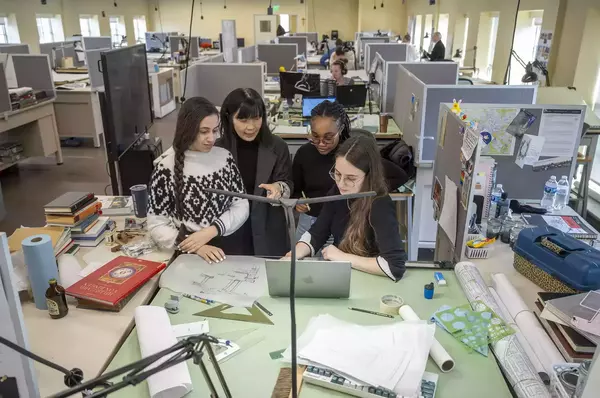
“This is an issue of environmental justice, and it is an urgent need,” Hu said.
Climate experts predict an increase in extreme temperatures, in turn increasing the health risks for the most vulnerable households that cannot afford heat or air conditioning, she said. Hu’s research seeks to reduce the energy burden through solutions that can be enacted quickly. New technologies, like machine learning, are making that possible.
“The data that previously took years to gather and compile can now be done in a fraction of the time,” she said.
Designing a project that can scale up to the national level, and that can change policy and planning projects throughout the United States, motivates Hu.
“To attain excellence on a societal level, it is imperative that we invest in women who have historically been under-supported on a global scale.”
Doing this work in the South Bend area provides even deeper inspiration. Despite the distance from China and myriad differences, South Bend feels like home to her, she said. The University of Notre Dame campus was her first destination when she arrived in America and it remains her favorite place in the US.
In China, the traditional, classical architecture curriculum at the Notre Dame School of Architecture is well-known, especially among her parents’ circle of colleagues, she said.
“Everyone knew the prestige of the University’s School of Architecture program; I am so fortunate to have attended, and now teach, at Notre Dame.”
When she returns to China, she sees firsthand how much of China’s unplanned urban development is dismantling regional culture across the metropolitan areas, and that troubles her.
“The cities today are not the cities I remember,” she said. “They are unrecognizable; they used to be walkable, convenient, and easy for ordinary people living there to access daily needs. That is not the case anymore in cities in Shanghai and other metropolitan areas.”
While she could use her expertise to assist with urban planning in China, she intends to stay right here at the University, partly because she is a mentor at heart.
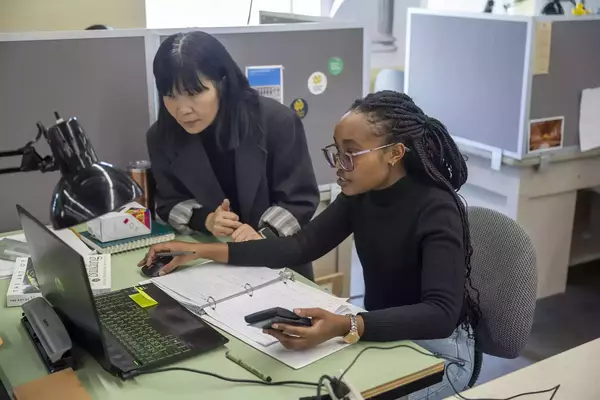
She considers mentoring an important part of her deanship and professorship duties at the School of Architecture and the College of Engineering. At Notre Dame, mentorship also nurtures students’ ethical compasses and cultural understanding, which are deeply tied to the University’s core principles. Shaping the future trajectories of her mentees, beyond their academic success, is critical to her daily work, she says.
“I have the privilege of guiding students through the academic rigor of the University, while sharing Notre Dame’s commitment to shaping ethical leaders,” she said. “I also consider my mentorship to be the kindling that ignites a passion for lifelong learning.”
Igniting that passion goes hand-in-hand with this year’s United Nations theme for International Women’s Day: Invest in Women: Accelerate Progress.
“The old adage, ‘We are only as strong as our weakest link,’ holds profound significance when considering societal progress,” she said. “To attain excellence on a societal level, it is imperative that we invest in women who have historically been under-supported on a global scale. This is not just an act of equity, but a strategic move toward our collective advancement.”
